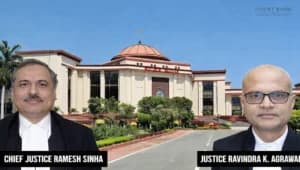The Kerala High Court has clarified that claims for compensation under Section 163A of the Motor Vehicles Act, 1988, can only be made against the owner or the insurer of the vehicle involved in an accident. The ruling establishes that no liability can be imposed on any other party, as there is no requirement to plead or prove negligence under this provision.
Justice C. Pratheep Kumar, while relying on the Division Bench judgment in United India Insurance Co. Ltd. v. Madhavan M (2011), stated:
Read Also:- Kerala High Court Directs State to Ensure Anonymity of POSH Act Complainants in Enquiry Proceedings
"Though in the above decision, the question whether a claim under Section 163A will lie against anybody other than the owner or insurer did not arise directly, the observation referred above substantiates the conclusion that a claim under Section 163A (1) of the MV Act will not lie against a person other than the owner and insurer of the motor vehicle, especially because, in a claim under Section 163A (1) there is no necessity to plead or establish negligence."
Case Background
The case involved a tragic road accident where a young man lost his life after the motorcycle he was riding pillion on fell into a water-filled trench on the road. His parents filed a claim under Section 163A before the Motor Accidents Claims Tribunal (MACT), seeking compensation for their loss.
The MACT ruled in favor of the claimants, ordering the insurer to pay Rs. 3,43,500 along with interest to the parents. Additionally, the Tribunal allowed the insurer to recover this compensation amount from officials of the construction company responsible for the trench.
Aggrieved by this order, the officials of the construction company approached the Kerala High Court, challenging the Tribunal's decision.
Read Also:- Kerala High Court Directs State to Submit Draft Composition of Working Group to Curb Ragging
The High Court analyzed the provisions of Section 163A, which states that:
"The owner of the motor vehicle or the authorized insurer shall be liable to pay compensation in case of death or permanent disablement due to an accident arising out of the use of a motor vehicle."
Furthermore, the Court emphasized that Section 163A(2) explicitly states that claimants do not need to establish fault or negligence:
"In any claim for compensation under sub-section (1), the claimant shall not be required to plead or establish that the death or permanent disablement was due to any wrongful act or neglect or default of the owner of the vehicle or any other person."
Given these statutory provisions, the High Court concluded that liability could only be imposed on the owner or insurer of the vehicle involved in the accident, not on any third party, such as construction officials or other entities.
In light of these observations, the Kerala High Court allowed the appeals and set aside the Tribunal's order permitting the insurer to recover the compensation amount from the officials of the construction company. The Court reiterated:
"In a claim under Section 163A, there is no necessity to establish negligence. The liability to pay compensation under this provision is only upon the owner or the authorized insurer of the vehicle involved in the accident."
This ruling provides a clear interpretation of Section 163A, ensuring that compensation claims are directed only at the owner or insurer of the vehicle. It also prevents claimants from attempting to shift liability onto third parties who are not legally responsible under the Motor Vehicles Act.
Case Title: Ramakrishnan Nair v. P. J. Varghese
Case No: MACA No. 2294 of 2012















